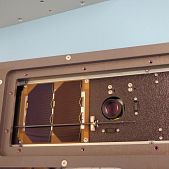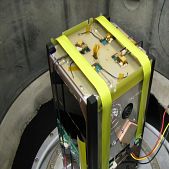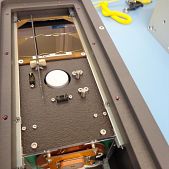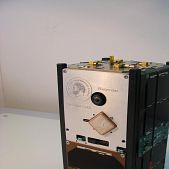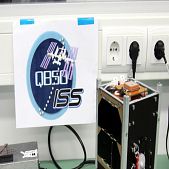
2 Greek microsatellites launched into space
Two Greek microsatellites, the UPSat and DUTHSat, the first from the Patras University and the latter from the Thrace University. They will be launched into space this evening at 18:11 Greek time – along with 26 other similar microsatellites- from the Kennedy Space Center at Cape Canaveral in Florida, USA. The microsatellites will be transferred onto a rocket-carrier «Atlas V», destined for the International Space Station (ISS).
The 28 microsatellites CubeSats, are part of the cargo shipped to the ISS by the private American aerospace company Orbital ATK, as part of the project of the robotic spacecraft Cygnus. The unmanned Cygnus will carry about 3.5 tonnes of supplies and scientific materials. Due to successive technical problems in the hydraulic system of the rocket “Atlas”, the launch was postponed several times.
UPSat is the first microsatellite based on open-source software fully constructed in Greece, the product of the University of Patras and the Libre Space Foundation under the QB50 program. The QB50 is part of the European Research Project FP7 Space, coordinated by the Von Karman Institute. The program concerns the conditional construction of microsatellites, the launch and operation of a set of 50 microsatellites, which will be used for the collection of data and for the study of the earth’s lower thermosphere (380 km above the earth’s surface).
DUTHSat (Democritus University of Thrace Satellite) is a Greek 2U-CubeSat constructed by the Democritus University of Thrace (DUTH) Space Research Laboratory part of the QB50 mission. As a payload for QB50, the satellite carries a multineedle Langmuir probe (mNLP) sampling the electron density of the space around it, Thermistors and a Magnetometer. The secondary payload is DUTH’s ASCIs Board and ULPDAQ chip.


